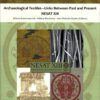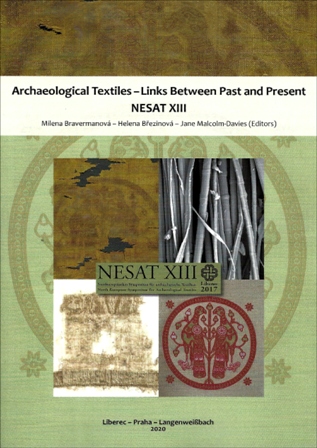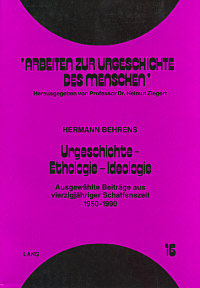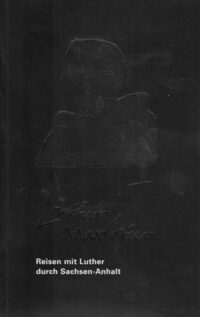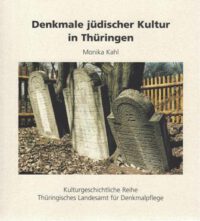Die Fakultät für Textiltechnik der Technischen Universität Liberec hat in Zusammenarbeit mit dem Institut für Archäologie der Tschechischen Akademie der Wissenschaften, Prag, die Berichte der internationalen Konferenz NESAT XIII (Nordeuropäisches Symposium für archäologische Textilien) veröffentlicht, die sie im Mai 2017 gemeinsam organisiert haben. Die Publikation besteht aus 33 Beiträgen, die ein breites Themenspektrum abdecken, darunter Forschungsmethoden im Zusammenhang mit archäologischen Textilien, die Textilproduktion in der Vergangenheit, neue Entdeckungen im Textilbereich sowie neue Analysen früherer Funde.
Faculty of Textile Engineering, Technical University of Liberec, in cooperation with the Institute of Archaeology of the Czech Academy of Sciences, Prague, published proceedings from the international conference NESAT XIII (North European Symposium for Archaeological Textiles) that they jointly organized in May 2017.
The publication consists of 33 contributions covering a wide range of topics such as research methods related to archaeological textiles, textile production in the past, new textile discoveries, as well as new analyses of previous finds.
Inhaltsverzeichnis
NESAT XIII – North European Symposium for Archaeological Textiles
Foreword
M. Bravermanová – H. B?ezinová:
• Archaeological Textile Research in the Czech Republic
I. PREHISTORY & PROTOHISTORY
S. Harris – A. M. Jones:
• Beautiful Things – Textiles and fibre artefacts from an Early Bronze Age cremation, Whitehorse Hill, England
J. S?omska – ?. Antosik:
• Textile Products from ?wibie – Clues to textile production in the Early Iron Age in modern Poland
M. Przymorska-Sztuczka:
• New Textile Finds from the Wielbark Culture Cemetery in Wilkowo, L?bork District, Poland
N. Kramer:
• Archaeological Textiles from the Roman Period in the Netherlands
T. Štolcová – D. Schaarschmidt – I. Vanden Berghe – S. Mitschke:
• Insights into Multicoloured Tapestry Textiles from Poprad-Matejovce, Slovakia – Excavation, conservation and analysis
A. Rast-Eicher – W. Nowik – N. Garnier:
• Textiles from Two Late Roman Graves Found in a Mausoleum in Jaunay-Clan near Poitiers, France
Z. Kaczmarek:
• Creolising Textiles – Some new light on textile production and consumption in Roman Age Free Germania
II. EARLY MIDDLE AGES
K. Grömer – E. Nowotny – M. Obenaus:
• Simple Linen, Patterned Fabrics and Silk Textiles – Textile culture on the south border of Great Moravia: Thunau in Lower Austria
U. Mannering – I. Skals:
• Textile News from Bornholm in Denmark – Recently excavated textiles from a well-known Late Iron Age cemetery
F. Pritchard:
• Twill Weaves from Viking Age Dublin
E. Wincott Heckett:
• Textiles from the Viking Warrior Grave, Woodstown, County Waterford, Ireland
S. Jansone:
• Textile Imprints in Grobi?a – Fabrics and their possible uses
M. Brunori – V. Sonnati – I. Degano – S. Bracci:
• The Coffin Cloth of Henry VII, Holy Roman Emperor (†1313) – A diagnostic investigation and conservation intervention
III. MIDDLE AGES
E. Retournard:
• Textiles for Miners and Mining – Archaeological textiles from the 12th to 14th centuries from Brandes-en-Oisans, Isère, France
R. Rammo:
• Archaeological Textiles from a Medieval Cog Found in Estonia
R. Case – M. McNealy – B. Nutz:
• The Lengberg Finds – Remnants of a lost 15th century tailoring revolution
D. Henri:
• Textile Production and Consumption in the 15th and 16th Centuries in Tours, France – An archaeological approach
IV. MODERN ERA
J. Malcolm-Davies:
• ‘Silk’ Hats from a Sheep’s Back – How sixteenth century craftspeople created legal luxuries
N. A. Pavlova:
• Children’s Burial Clothing from the 16th and 17th Centuries Excavated in the Ascension Convent of the Moscow Kremlin
B. Nutz:
• Peasants and Servants – Deliberately concealed garments, textiles and textile tools from a rural farm building
V. ANALYSES
H. Lukešová:
• Application of the Herzog Test to Archaeological Plant Fibre Textiles – The possibilities and limits of polarised light microscopy
K. Vajanto – M. Pasanen:
• Lichen Purple, Tannin Red – Reconstructing a Viking Age Finnish woman’s woollen shawl
A. Bruselius Scharff:
• The Assessment of Natural Pigmentation in Archaeological Wool
VI. EXPERIMENTAL ARCHAEOLOGY & TEXTILE TOOLS
J. Banck-Burges – H. Igel:
• Experimental Archaeology as a Key for the Recognition of the Cultural-Historical Value of Archaeological Textiles
A. Rast-Eicher:
• The Pfäffikon-Irgenhausen Textile – Discussion of a decoration system
K. Kania:
• To Spin a Good Yarn – Spinning techniques with handspindles
I. Demant:
• Making an Iron Age Dress on the Warp-Weighted Loom – The results of experimental archaeology
J. Chylíková:
• An Interpretation of the ‘Bombastic’ Cham Culture Spindle Whorls by an Archaeological Experiment
M. de Diego – R. Piqué – M. Saña – I. Clemente – M. Mozota – A. Palomo – X. Terradas:
• Fibre Production and Emerging Textile Technology in the Early Neolithic Settlement of La Draga – Banyoles, north-east Iberia; 5300 to 4900 cal BC
VII. OVERVIEWS
J. Maik:
• The Beginnings of Polish Research on Archaeological Textiles
A. Rybarczyk:
• Knitting in Old Elbl?g – Archaeological and historical evidence
M. Cybulska – D. Berbelska:
• Museum Collections in the Study of Archaeological and Historic Textiles
VIII. COLOUR PLATES SECTION
IX. POSTERS

